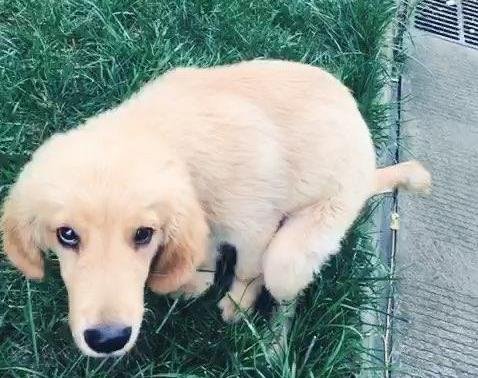
Analysis of Dog’s Unique Behavior: Kicking Two Feets After Toilet
 In terms of hygiene habits, dogs are not as good as cats. When the dog drinks water, it’s like a big leaky spoon, and after drinking, the ground is covered in water. In contrast, cats are much more gentle.
In terms of hygiene habits, dogs are not as good as cats. When the dog drinks water, it’s like a big leaky spoon, and after drinking, the ground is covered in water. In contrast, cats are much more gentle.
Cats will bury feces when convenient, and my dog will also kick on the ground every time he defecates, as if he is also burying feces. But this behavior of a dog is really useless – because every time I come to pick up shit.
From my observation, some dogs don’t know how to kick the ground after defecation, some just kick it and it’s done, and some will change their feet and kick a few more times.
Why did the dog do this? Out of curiosity, I consulted some information.
Is this behavior normal?
Of course it’s normal. Many wild canine animals exhibit similar behaviors, such as wolves, hyenas, and so on. Animal behaviorists believe that this is a way for dogs to communicate with each other. In other words, what the dog is doing is not burying feces and urine to cover up the odor, but rather striving to preserve and detect the odor more widely.
Scratching on the ground with your feet has a dual effect of both visual and olfactory senses.
one
smell
Some scientists believe that this behavior contributes to the diffusion of odors. Scratches on the ground can disperse urine containing the special odor of dogs, and leave some odor on the dog’s paws, emitting it while scratching.
two
vision
A study in 1979 found that free range dogs scratched the ground more frequently when other dogs were present around them. Regardless of whether a dog urinates or defecates, it is possible for them to perform such actions.
Therefore, scientists believe that this is a form of signal transmission by dogs to their peers, informing them that they have left a mark. Even without other dogs present, the lines on the ground can still convey some information.
Scientists have also found that during or after male dogs kick the ground, other dogs try to avoid contact with them, but they do not avoid urine and scratches on the ground.
Which dogs like to kick the floor after defecation?
Regardless of size, male or female, they will exhibit such behavior. According to the previous study, the proportion of such behavior is approximately 9%. Especially when free range dogs clash with other dogs that do not belong to their group, kicking the ground becomes more frequent.
A study in 2016 found that in shelters, older dogs tend to kick the ground more frequently than adult and puppies. However, kicking the ground does not necessarily occur every time after urination and defecation.
Sometimes, when a dog smells the ground, it will kick a few feet.
The reason for kicking?
Based on the above studies, it is generally believed that dogs do this for the following purposes.
one
Mark Territory
Among free range dogs, kicking along their territorial boundaries is more frequent. Pet dogs also kick the floor more frequently in the yard, front and back of the house.
Dogs in the city are more likely to exhibit such behavior near residential buildings or in frequently visited parks.
Dogs doing this may be letting other dogs in the area know of their existence. After all, every time the dog kicks the ground, it leaves its own signal on the ground.
two
Social behavior
For free range dogs, they tend to kick the ground more frequently when encountering unfamiliar peers. In free range dog herds, dogs with higher grades tend to exhibit kicking behavior more frequently.
This may be a behavior of preventing peers from approaching oneself, or a manifestation of “intimidating” peers.
Of course, no matter what the purpose is, this behavior of a dog is normal and there is no need to correct it, nor has it changed anything
American Dingo animal behavior Budget Tips canine behavior Canine Care Canine Health DIY pet projects dog behavior Dog Breeds dog care Dog Care Tips dog exercise Dog Food Dog Grooming dog health Dog Measurement dog nutrition dog ownership dog potty area Dog Training Dog Wound Care Family Pets Hunting Dogs lipomas in dogs newborn puppy care obedience training outdoor pet care Pet Care Pet Care Tips Pet Health Pet Loss Pet Safety pet tips pet training Positive Reinforcement Potty Training Puppy Care puppy health Puppy Training Rabies in Dogs Temperature Monitoring Training Tips veterinary advice Veterinary Care Veterinary Tips
Sorry. No data so far.
Leave a Reply
You must be logged in to post a comment.